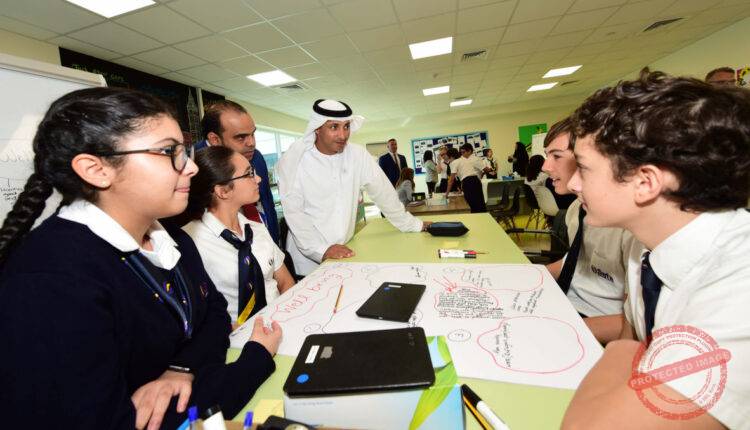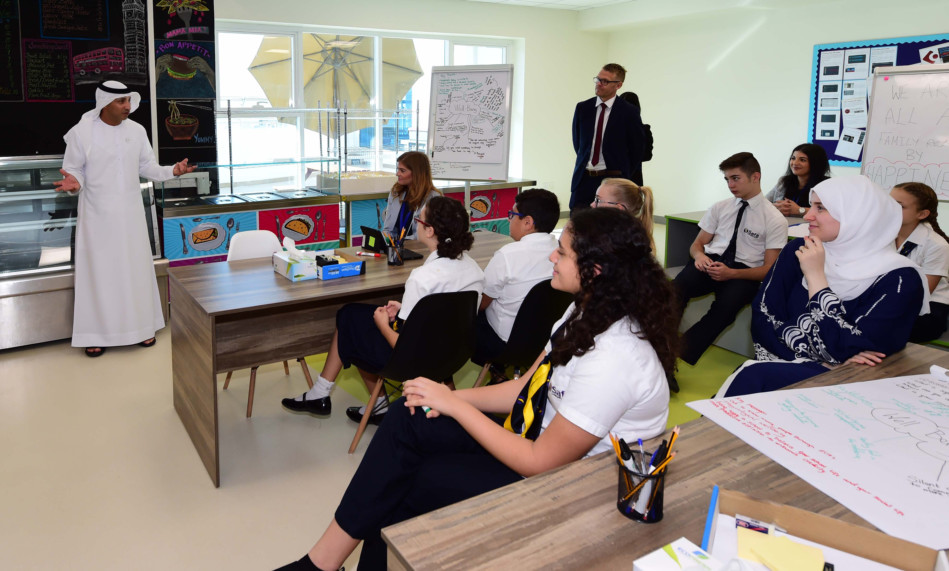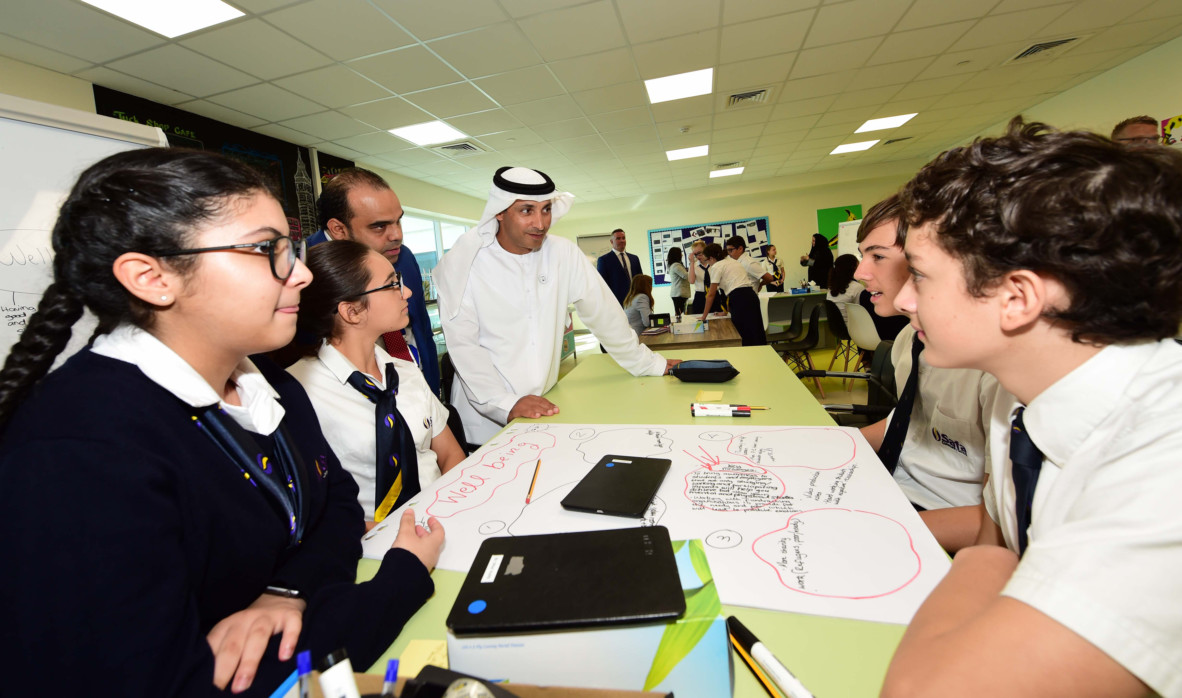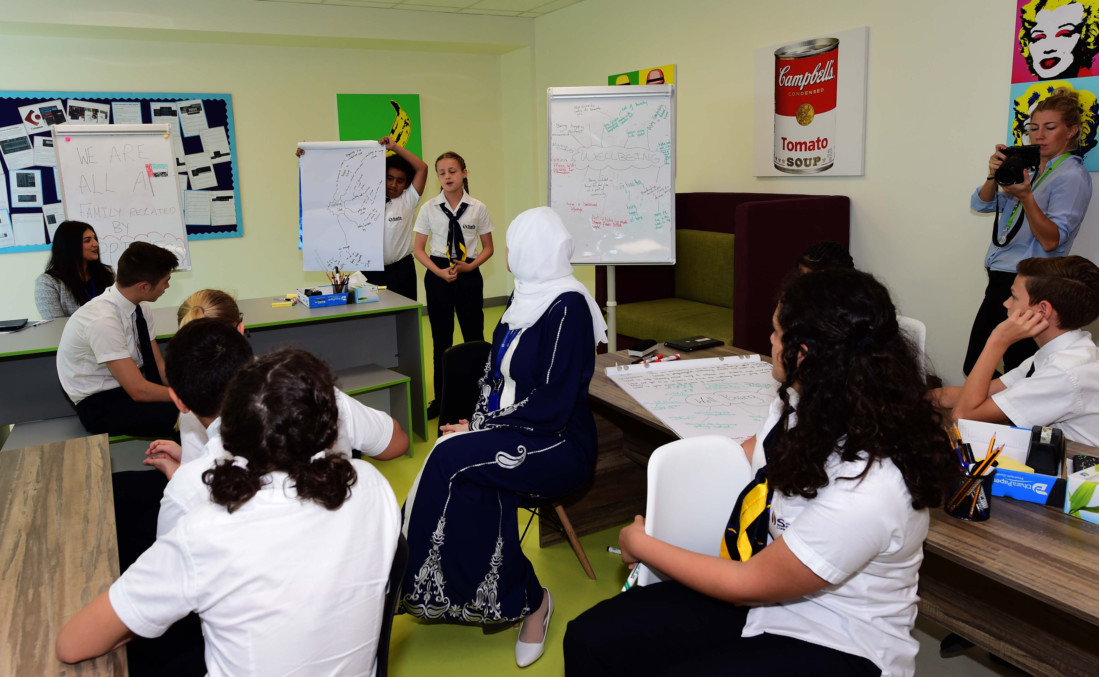Dubai schools ‘taking student well-being census seriously’
Scores of pupils take second round on anonymous and voluntary survey rolled out by KHDA.

Safa Community School in Dubai, for instance, now allows students to choose what they want to do in the last part of the school day on Thursdays, said principal Stephen Duckitt. The flexibility follows student feedback from last year’s census that indicated pupils wanted more “time off”, Duckitt added.
His comments came during a visit by officials of the Knowledge and Human Development Authority (KHDA), Dubai’s education regulator, on Tuesday.
KHDA, in partnership with the Government of South Australia, launched the five-year census in 2017, in which almost 65,000 middle-school students participated from almost 170 Dubai schools. The overall finding then was 84 per cent of students were happy most of the time.
Higher target
This year, the census aims to reach 100,000 students in grades six to 12. So far, around 35,000 students have taken the computer-based census this year, which is voluntary and anonymous. The census asks dozens of questions related to students’ happiness, self-perception, activities, and other issues.
The latest edition will end by the first week of December, with results expected in early 2019. As last time, schools will receive a report of the results with recommendations — they can choose to share the results with parents.
On Tuesday, Dr Abdullah Al Karam, director-general of KHDA, said during the school visit that the latest results will show what, if anything, has changed since 2017. He added that KHDA will also create “platforms” or events for principals, teachers and students to discuss well-being.
Power of choice
Dr Al Karam said the focus on well-being will eventually lead to parents choosing schools that provide the best care for students. Answering a question about schools that want to force children to repeat a school year because they could not sit exams due to illness, Dr Al Karam said: “Mark my words, it’s only a matter of time that exams will vanish. Once people realise the importance of well-being and they see the live examples, slowly but surely exams will vanish, by choices that parents make.”
He added: “Take your kid to a happier school. Don’t spend a day in a school that you’re not happy with. There are choices available to you [parents] today.”
‘Completely honest’
Grade eight students at the school said the census allows them to express themselves comfortably.
Nell Grace Holburn-Lewis said some students who are “shy or not good at communicating” will find it easier to type or write out their feelings in the census.
Cassandre Tesoriere pointed out that the anonymous census means “you don’t have to face other people’s reactions. You can say what you like and they won’t judge you”.
Maisy Read described the census as “definitely helpful” in letting educators know how students feel, especially since “we can be completely honest”.




